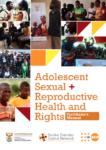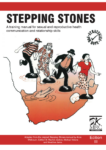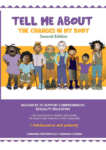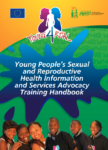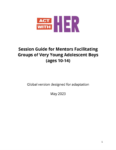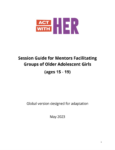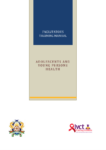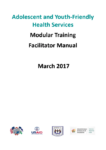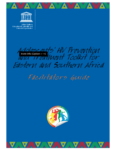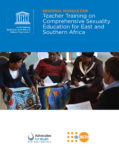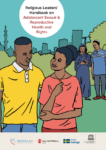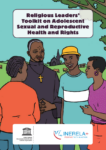Welcome to


This web page is hosted on the StopCSE.org website.
President of Family Watch International
View Our Mission & Objectives
Mission:
To protect the health and innocence of South African children and the fundamental rights of parents to direct the education, healthcare and upbringing of their children.
- To advocate for laws and policies that will protect children and parental rights.
Objectives:
- To expose the harmful nature of comprehensive sexuality education (CSE), gender ideology, and pornographic materials and prevent any such materials, programs or ideologies from being distributed, implemented or promoted in South Africa schools.
- To inform and mobilize concerned citizens including parents, grandparents, teachers, young people, policymakers, government officials, and business, religious and community leaders to protect our children.
Step 1: Discover Federally Funded CSE programs in your country
Here are the federally funded programs available in your country. Click on a program to see key details, including publishers, funding sources, documented evidence, and full curriculum downloads.
B-Wise
...
Here are the federally funded programs available in your region. Click on a program to see key details, including publishers, funding sources, documented evidence, and full curriculum downloads.
Step 2: Understand the CSE Agenda
Watch the War on Children to learn the global scope of the CSE agenda at the international and national levels
10 Minute Version
35 Minute Version
Step 3: View your Country Sex Ed Laws & CSE Funding Streams
(This tool is not available at this time, but research is in progress.)
Current sex ed and parental rights laws in your country - Currently Unavailable
Federal CSE funding streams, CSE grant amounts awarded in your country, CSE grant recipients - Currently Unavailable
Take Action to Protect Children
Do You Need Help?
Fill out the form below to connect with a mentor.
Sign Stop CSE Petition!
We, the undersigned parents, grandparents, teachers, doctors, counselors, business, religious, and community leaders, in association with the Protect Children South Africa Coalition, strongly oppose the proposed implementation of Comprehensive Sexuality Education (CSE) in the Life Orientation curriculum in South Africa’s public schools for the following seven reasons:
Read Full Petition
RESOURCES
Harmful UN-Supported CSE:
Regional Module for Teacher Training on Comprehensive Sexuality Education for East and Southern Africa International Technical Guidance on Sexuality Education (2018 UNESCO, UNFPA, UNICEF, UNAIDS, UN WOMEN, WHO) Fulfil! Guidance document for the implementation of young people’s sexual rights (World Health Organization, UNESCO) International Guidelines on Sexuality Education (2009 UNESCO) Standards for Sexuality Education for Europe (World Health Organization)
Videos:
Sex-Ed News:
Protect South African Children Petition!
We, the undersigned parents, grandparents, teachers, doctors, counselors, business, religious, and community leaders, in association with the Protect Children South Africa Coalition, strongly oppose the proposed implementation of Comprehensive Sexuality Education (CSE) in the Life Orientation curriculum in South Africa’s public schools for the following seven reasons:
1. CSE runs counter to South African cultural values. CSE is a harmful Western- and UN-driven agenda that seeks to change South African gender and sexual norms under the guise of HIV and teen pregnancy prevention. Multiple UN agencies clearly revealed their harmful “rights-based” sex agenda in their 2018 publication, “International Technical Guidance on Sexuality.” This publication reveals that CSE promotes “the right to decide when and with whom” a child will have sex rather than discouraging children of minor age from engaging in sex at all. It also promotes harmful gender identity ideology, sexual promiscuity and abortion. It recommends asking children to “differentiate” their sexual values from their parents and to “question” social norms on sexuality.
2. Rolling Out CSE without prior parental involvement, guidance and approval violates well-established parental rights. According to multiple binding and nonbinding international human rights documents that South Africa is a party to, parents have the “prior right” to guide the education of their children, and yet parents have had no opportunity to view, evaluate and approve of any proposed sexuality curriculum.
3. UNFPA and Sweden, among other UN agencies and foreign governments are driving the CSE agenda in South Africa. For example, UNFPA, in their publication funded by the Swedish government titled, “Basic and Higher Institutions of Learning in KwaZulu-Natal,” (see at https://southafrica.unfpa.org/sites/default/files/pub-pdf/UNFPA_CSE_report_web.pdf) calls for a “roll out and implementation of CSE nationally” and discusses the controversial issues of “sexual orientation,” “gender identity,” and “sexual diversity” and respect for “all sexual preferences.” It also reveals, that through CSE “children will also be taught that you have the right to say no to sex” rather than, again, discouraging children of minor age from engaging in sex at all. Yet teens who are sexually active often experience many of the following negative consequences:
• Less likely to use contraception
• More likely to experience an STI
• More concurrent or lifetime sexual partners
• More likely to experience pregnancy
• Lower educational attainment (not necessarily linked to pregnancy)
• Increased sexual abuse and victimization
• Decreased general physical and psychological health, including depression
• Decreased relationship quality, stability and more likely to divorce
• More frequent engagement in other risk behaviors such as smoking, drinking and drugs
• More likely to participate in antisocial or delinquent behavior
• Less likely to exercise self-efficacy and self-regulation
• Less attachment to parents, school and faith
4. CSE programs, including those promoted by UN agencies and Sweden, take a controversial “rights-based” rather than health-based approach to sex education emphasizing “sexual rights” over sexual health.
5. South Africa’s signing on to the “Ministerial Commitment on Comprehensive Sexuality Education and Sexual and Reproductive Health and Rights for Adolescents and Young People on Eastern and Southern Africa (ESA)” was done without proper consultation with the appropriate branches of government and without proper regard for the rights of parents to direct their children’s education.
6. The “National Adolescent Sexual and Reproductive Health and Rights (ASRHR) Framework Strategy” also violates the rights of parents who were not consulted and reflects a UN and Western governmental sexual rights rather than sexual health approach. Similar “framework” strategies are being pushed by UN agencies all across the globe in violation of parental rights.
7. Most importantly, the research UN agencies use to claim CSE is effective and will prevent teen pregnancy and STDs including HIV and that abstinence education is ineffective has recently been thoroughly discredited in a global study. According to this new global analysis found at SexEdReport.org, CSE has the highest failure rate in Africa (89% failure rate) and the highest rate of negative impacts (24%) in Africa as well. The researchers in this study titled,“Re-Examining the Evidence for Comprehensive Sex Education in Schools – A Global Research Review,” looked at the research referenced by UNESCO and concluded:
“Three decades of research indicate that school-based comprehensive sex education has not been an effective public health strategy—it has produced only a few sustained effects on protective out- comes, without other negative impacts, in U.S. and non- U.S. settings combined. In fact, it [CSE] has shown far more evidence of failure than success and caused a concerning number of harmful effects … Given the threat posed by STDs, HIV, and pregnancy to the health and well-being of young people worldwide, and the compelling lack of evidence of effectiveness for school-based Comprehensive Sex Education after nearly 30 years and 103 credible studies, we recommend that policymakers abandon plans for its global dissemination and pursue alternative prevention strategies for reducing the negative consequences of adolescent sexual activity. Further studies of the positive findings for abstinence education should be done to inform the development of such paradigms.”
In conclusion, without a legal obligation to provide failed and highly controversial CSE in our schools, nor evidence to support CSE from a health perspective, it is unclear what the DBE’s rationale is for implementation in SA schools.
In light of all of these alarming facts, we, the undersigned, respectfully request the South African government, and in particular our Minister of Education, to urgently take the seven following actions:
1. Withdraw from the Eastern Southern Africa Commitment on CSE. (Several other African countries that did not understand the CSE agenda when they signed it are also now working toward withdrawing.)
2. Abandon the controversial “National Adolescent Sexual and Reproductive Health and Rights (ASRHR) Framework Strategy.”
3. Withdraw all ongoing or intended programmes containing any and all elements of CSE. (See 15 common harmful CSE elements at https://www.comprehensivesexualityeducation.org/wp-content/uploads/Harmful-Effects-10.17.17.pdf)
4. Recognize and respect the rights of parents and guardians in guiding, shaping and influencing the education and especially the sex education of their children.
5. Ban the reintroduction of any and all harmful elements of CSE in its various formats from any curricula or programmes in South Africa.
6. Mainstream the promotion of abstinence (or a return to abstinence for sexually active youth) from all sexual behaviour as the expected standard for all South African children of minor age, throughout all sex education curricula.
7. Ensure that no South African public school shall include in any of its courses of study instruction which:
a. Normalizes sexual conduct between minors or uses examples depicting or describing children of minor age engaged in sexual conduct.
b. Suggests that any type of sexual conduct between minors can be safe or without risk.
c. Includes materials or content about masturbation or oral or anal sexual contact.
d. Includes materials or content that suggests that children of minor age have sexual rights beyond those related to protection from abuse.
e. Includes materials or content about gender identity theory including the following concepts:
- that gender or sex can be fluid or changeable
- that gender or sex exists on a spectrum
- that gender or sex is self-determined rather than biologically determined
- that genders or sexes exist other than male or female
- that teaches children to use female pronouns for males and vice versa
f. Encourages children to identify according to their sexual preferences.
We affirm that compassion and assistance should always be given to children struggling with their gender identity, but such compassion should not consist in affirming children in an identity that is counter to reality and that can lock them into a false belief leading to medical interventions and mutilating surgeries that leave children infertile for life.
We, therefore, respectfully request that you give this matter your most urgent attention and immediately act to protect South African children by taking the aforementioned steps.
The future of our nation—and our children—is at stake.
Sincerely,
Rev Moss Nthla: Secretary General – The Evangelical Alliance of South Africa (TEASA)
Rev Angelo Scheepers: Secretary General – The Baptist Union of South Africa
Bishop Ziphozihle Siwa: Presiding Bishop – The Methodist Church of South Africa
Rev George Mahlobo: President – Apostolic Faith Mission of South Africa (AFM/AGS)
Rev Stafford Peterson: President – Full Gospel Church of South Africa
National Leader: Assemblies of God (AOG)
Errol Naidoo: Director – Family Policy Institute
[Your name will be inserted here along with other signers]



